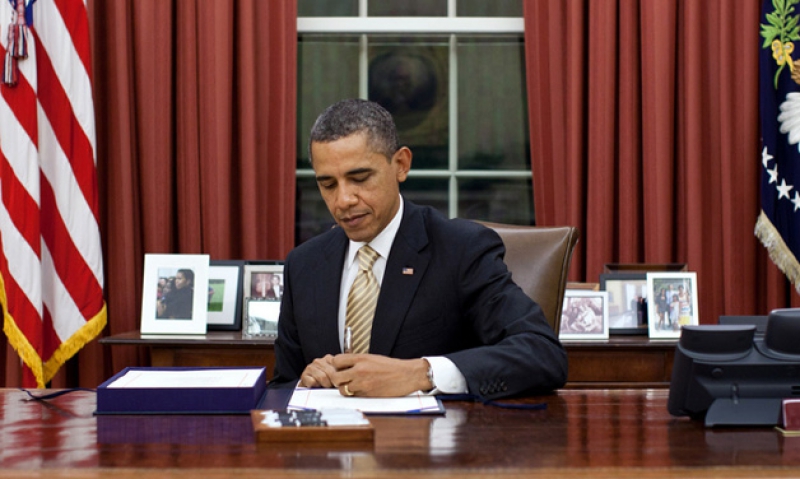
The establishment of a Military Credentialing and Licensing Task Force hopes to ease job transition for veterans and servicemembers.
American Legion National Commander Fang A. Wong is applauding the White House for an employment initiative that echoes his organization’s efforts to streamline the transition of veterans into the civilian job market.
In a June 1 appearance at Honeywell International’s facility in Golden Valley, Minn., President Barack Obama — in the company of Legion state commander Charles Kruger and state adjutant Randall Tesdahl — announced the establishment of a Military Credentialing and Licensing Task Force within the Department of Defense.
"This certainly reflects The American Legion’s long-term efforts on this issue," Wong said. "We are pleased that the president views this issue with the same perception and priority as we do."
The American Legion’s efforts toward improving the recognition of military education, training and experience by the private sector, began two decades ago when it hosted a two-day summit on the licensing and certification of veterans. That effort has continued with repeated lobbying efforts on Capitol Hill, testimony before congressional committees and a national credentialing Summit this past February in Washington that brought together experts, advocates and policy-makers from the public, federal and private sectors.
Within one year, says the White House, the Military Credentialing and Licensing Task Force is to identify military specialties that readily transfer to high-demand civilian jobs; work with civilian credentialing and licensing associations to bridge gaps between military training programs and credentialing and licensing requirements; and provide servicemembers with greater access to required certification and licensing exams.
The task force will focus initially on industries with an identified need for more skilled workers, and those that stand to benefit from military expertise and training. These industries include manufacturing, first responders, health care, information technology, transportation and logistics.
It is estimated that this effort will provide opportunities for up to 126,000 servicemembers to gain industry-recognized, nationally portable certifications for high-demand manufacturing jobs through partnerships with the armed forces and several manufacturing credentialing agencies.
As noted previously, The American Legion, along with the U.S. Chamber of Commerce and the consulting firm Solutions for Information Design, hosted a national credentialing summit. The two-day gathering at the National Chamber of Commerce featured a series of on-stage panel discussions among representatives of private industry, non-profit organizations, government agencies and the military community. Panelists included experts on credentialing quality assurance, state licensing and regulation, and the role of workforce systems in promoting veterans’ licensing and certification. Best practices identified and lessons learned during the summit are now being applied throughout the industry and government.
At the U.S. Army Training and Doctrine’s request, the Legion helped identify a number of national personnel certification bodies and will bring them together on June 12 to discuss improvements to the credentialing process for servicemembers.
The Legion has also been working with government agencies, including the Internal Revenue Service, and the departments of Energy, Defense and Transportation, to educate them about the value of job seekers who possess military experience and training. The Legion also continues to work closely with members of Congress, urging them to pass various pieces of legislation that will streamline the credentialing process for men and women who are still on active duty.
"The military invests millions in training servicemembers, making these young men and women truly experts in highly specialized and valuable skills," Wong said. "Unfortunately, due to miscommunication and bureaucracy, these skills are not always applied as they should be in the civilian workplace. This error is especially evident in the trades and professions requiring licensing and certification.
"We hope that the president’s initiative, along with The American Legion’s own continuing efforts, can remedy that problem. Our returning servicemembers not only deserve our gratitude for their contribution to our national security, they deserve a meaningful job when they return to the civilian world. Giving it to them is the least a grateful nation can do."
- Job Front

